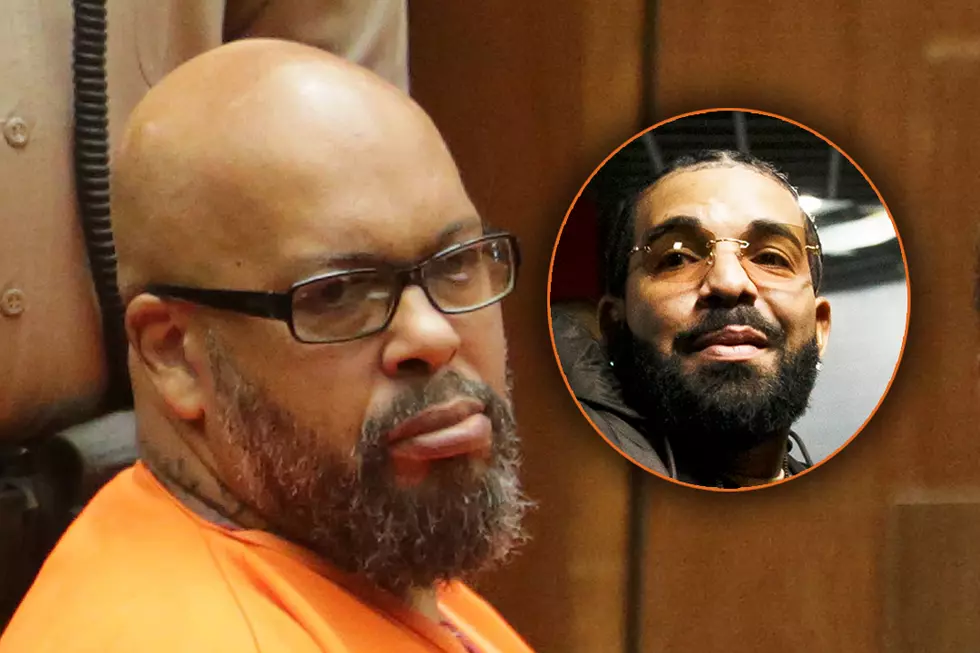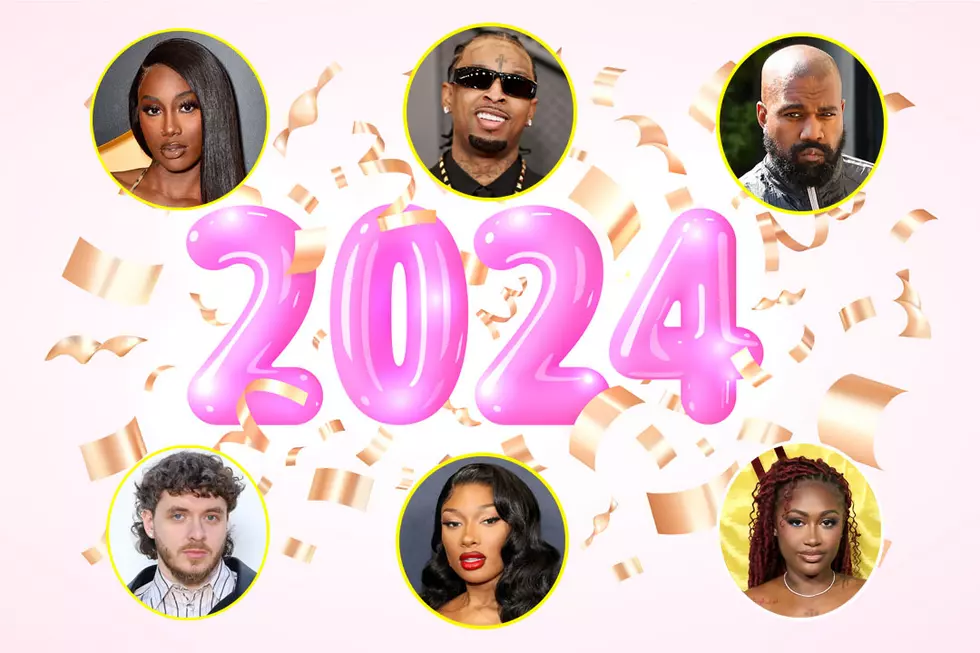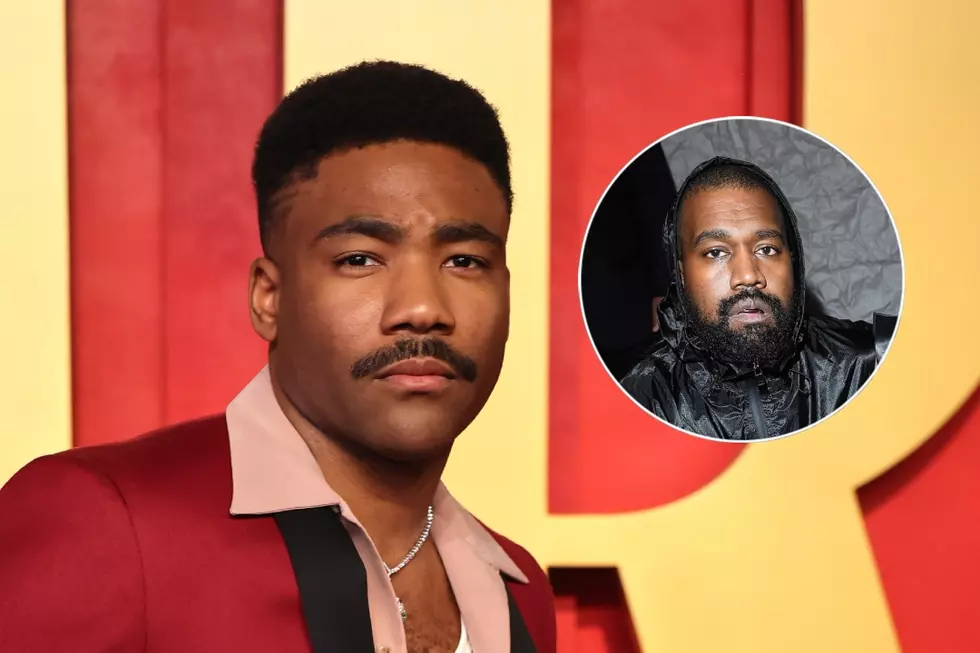
Director X: “Kanye West is Important Because He Pushes the Limits.”
Born Julien Christian Lutz, video director Little X first captured the attention of the hip-hop world in the late ’90s as Hype Williams’ protégé. Since making his own lane away from his mentor, X quickly established himself as a leader in the industry—directing videos for such notable acts as Kanye West, Alicia Keys, Jay-Z, Common, and Usher, while managing to survive the Internet age which has made music video channels all but obsolete.
As his career has evolved, so has his name. Little X—who this year has directed videos for Nicki Minaj, Sean Kingston, and The-Dream, among others—has adopted a new moniker: Director X. “It’s a much better name,” he explains with a laugh.
XXLMag.com recently linked up with the director-formerly-known-as-Little X to hear his take on fellow Canadian native Drake, his new project with Swizz Beatz and why dollar signs don’t always equate to being a sell-out.
XXLMag.com: The first question of course is why the name change?
Little Director X: It was time, you know? Had to switch it up and get on my Diddy.
What’s the most important lesson you learned from your time with Hype Williams?
If I ever took any major lesson away from him it was how to make a video about something. At first when he said it I didn’t understand it. I thought he was only talking about a storyline, but then I realized that a video can be about a shot, it can be about a set. It can be about something visually. It could be about a color—people wearing red in front of a black background. Know what I’m sayin’?
Yeah, Hype also recently worked on Kanye West’s “Runaway” short film. What’s your take on it?
I think it’s great, man. With videos like “Runaway” it really encourages people to think outside the box a bit. Kanye West is really important in that sense of pushing the limits. Those artistic directors and musicians, and performers… I mean, even Nicki Minaj is in there. Missy was in there—even though those two are a little more “poppy” and “cartoony,” they still push the limits of what hip-hop accepts. And we all need a bit of pushing. We’re coming from the streets and the streets have their own little circle of what’s cool and what’s acceptable. So it takes someone outside of that realm to push them forward a bit.
Is that harder to do that in the Internet age?
A good video is still a good video. At the end of the day it’s gotta be able to run. You gotta be able to watch it and enjoy it. But with the new outlets for video it’s allowed people to get videos that would have never been seen, seen. You can shoot videos for much less now—and that’s good and bad—but with a good quality camera and a great imagination, a young kid could really make a good video for a song that would have otherwise not had a video. Years ago if they said, “We’re cutting your budget,” it would have been a different deal.
As a Canadian yourself, how are you feeling about Drake’s rise to stardom?
It’s great, man, it’s great. [In the Toronto area] we have big city things going on but we don’t really have a lot of people. We’re actually a small city. So we have that same kind of thing about how kids in St. Louis must have felt when Nelly came out. It’s like, “Wow, we got a shot.” And I kinda feel like I led the way. I wasn’t rapping, but I was right there with Jay-Z making a video. Back when we still had Making the Video and Access Granted people were able to actually see me doing it. They would see me there with them. But now with Drake, there’s rapping. No one ever thought Toronto would be the birthplace of the next [star], you know what I’m sayin’? (Laughs).
Some say that Drake doesn’t get his due respect in America simply because he isn’t from the States. Would you agree?
No, he is though. I think part of the reason Drake does fit in the States is because his father is from Tennessee, you know? He grew up [in Canada] so he has a different vibe and a different mentality. But blood doesn’t forget. Blood remembers. So even in his different energy, people can sense that there’s something about Drake that fits with them. Because biologically, he’s a down south boy, know what I’m sayin? So he got the experience of growing up here but on some levels he’s American.
You recently worked with Drake’s label-mate Nicki Minaj, whom you mentioned earlier. How did you come up with the concept for “Your Love?”
Well, it started with the fabric. No one had done that fabric thing in the way I had seen it in my head. So it all started to develop from there. She was really ‘bout it. She was the one who said she wanted to die at the end of the video—that wasn’t me. That was her saying, “I wanna die at the end,” and that was a big step. But that’s her. She thinks differently. She’s a throw back to Missy with the wild, fun, creative stuff. But then there’s also elements of Foxy [Brown] and [Lil’] Kim. So with this new generation, I think they’re really stepping out into some new things.
Sounds like you had a pretty easy time working with Nicki. What was the most challenging video you’ve worked on?
I wouldn’t say it was an “easy” time working with Nicki (laughs). It was a good time…not “easy.” But the most challenging would have to be Baby. We just operate differently. Baby has his way of making videos and I have mine. I make art. I’m out here making art. I’m looking to make art. And sometimes I have these long hours and hot lights, you know what I’m saying? But I’m out here working for my art, and suffering for my art and passion, you know? I’m one of those guys. Baby ain’t trying to suffer for a video (laughs).
Does that Yeo Valley commercial you did fall under the “suffering for art” category? Some may argue that was a bit of a sell-out move.
And don’t forget the other one I did with the White kids rapping. Go look up Smirnoff Tea Party (laughs). List that one, too, if you wanna talk about Yeo. As a hip-hop purist I’d instruct them that these things keep it real for what they’re doing. If you look at Yeo Valley and Tea Party—that isn’t them making fun of hip-hop. This is them talking about where they’re from. If you wanna talk about yourself, or big up yourself or the place you’re from, nothing really works better than hip-hop. Nothing. Singing about how great your talent is doesn’t really have the same effect as rapping it over an aggressive beat. Remember, someone’s gonna make the video regardless
So why not be the person whose pockets get fatter off of it instead of the next man?
Well, not just pockets, but yeah, you know? Why not take my money? This the real world my niggas. This is hip-hop now. Hip-hop is gonna get paid, let’s be straight. Let’s save that sell-out conversation for fuckin’ Sprite commercials 10 years ago. So on that level, yeah, I’ma do my job. On another level I’m gonna represent me and where I’m from. When we were young, hip-hop was like a religion. So if these guys wanna talk about their country club, let’s make it about your country club. And yes, it was meant to be funny, it was real over the top. But when you read some of the response to it these kids who really live that life are like, “Yeah, this is real.” Same with Yeo Valley. You ask a farmer and they’re like, “Yup, that’s my life.” (Laughs) And that was the idea—showing these guys lives.
You’ll also be making your feature film directorial debut soon. Can you talk a bit about that?
I can’t talk about specific projects but there’s stuff I’m working on. I know sometimes stuff gets out into the media and gets talked about and other ones don’t but I prefer when they don’t. I’m very private. I’m a Scorpio so I like to work on what I’m working on then bring it out for people to see it. I’m developing things and making something interesting. We’ll see if next year I open up a bit more (laughs) but it’s the Scorpio in me. There’s a couple things that are being worked on and developed—so it’s all good, kids.
Then let’s here about your latest completed project that we should be looking out for.
Swizz Beatz’ video “You Be on My Mind.” We shot the video over two days in Dubai. I’m looking forward to that being released so all of you guys can see that. —Aliya Ewing
More From XXL









